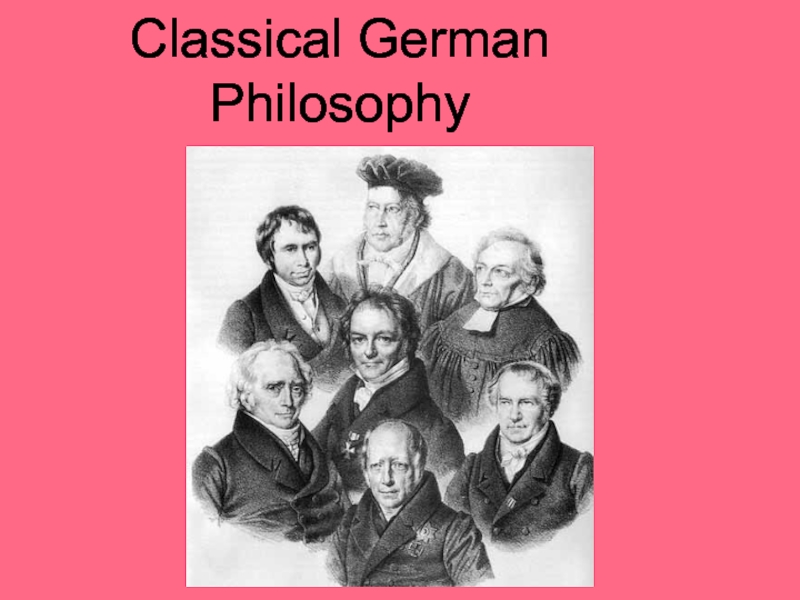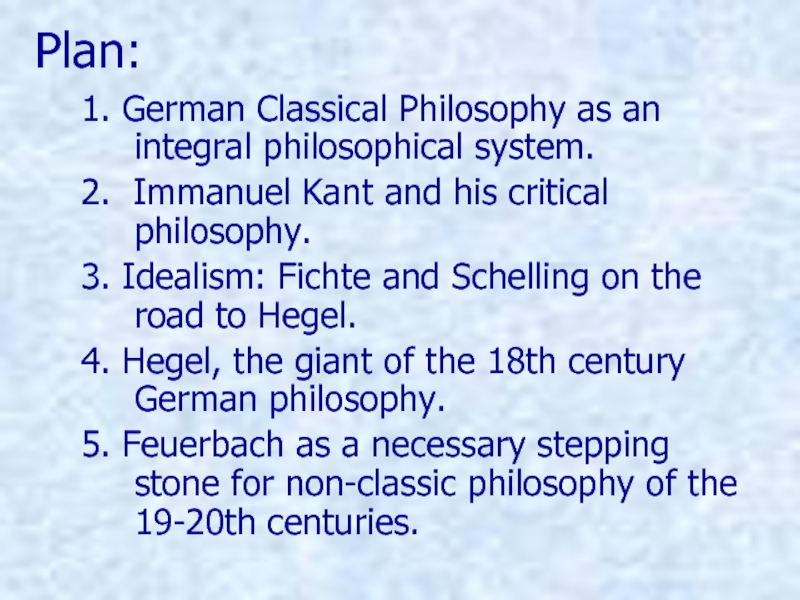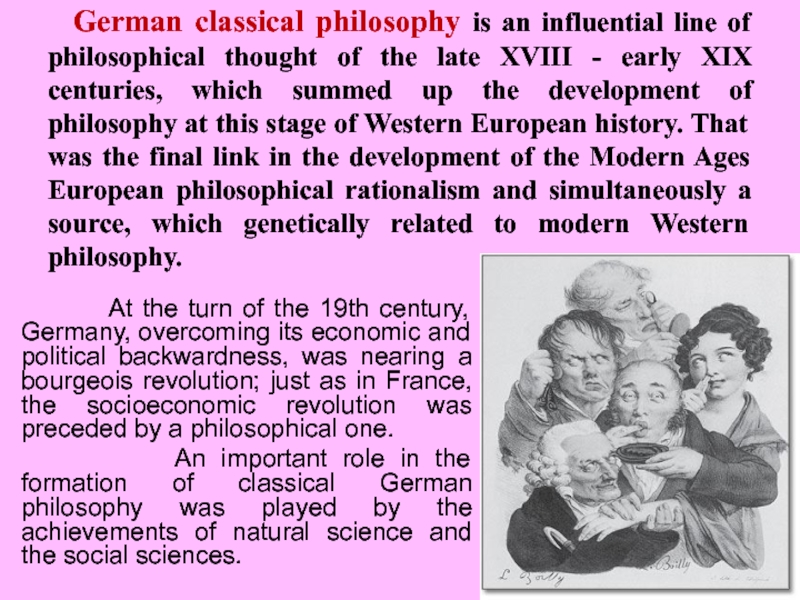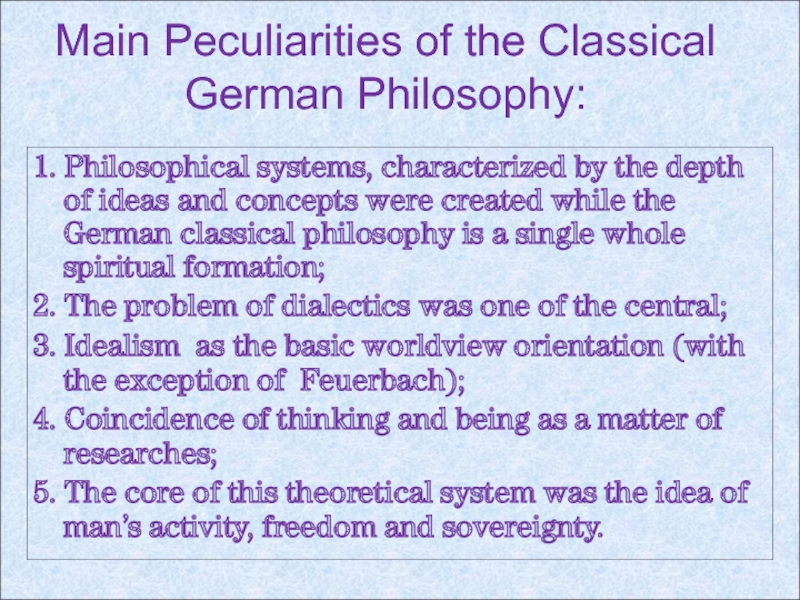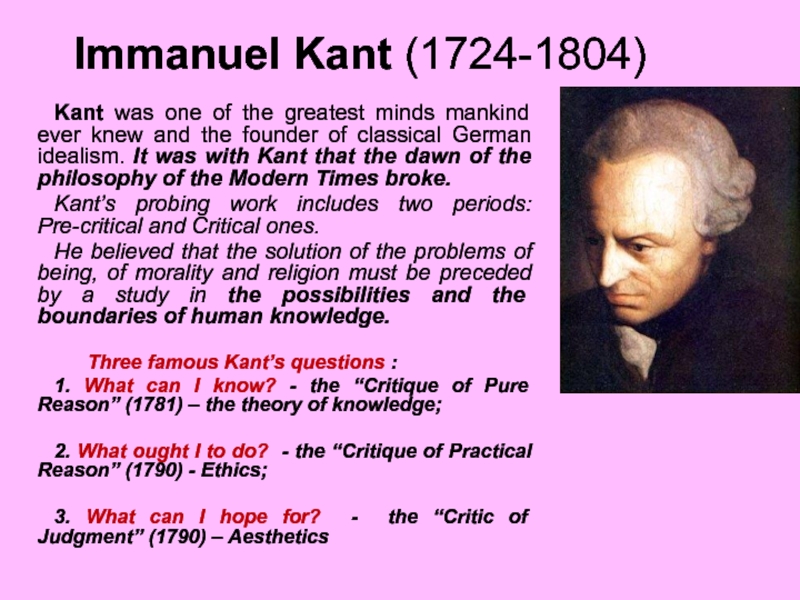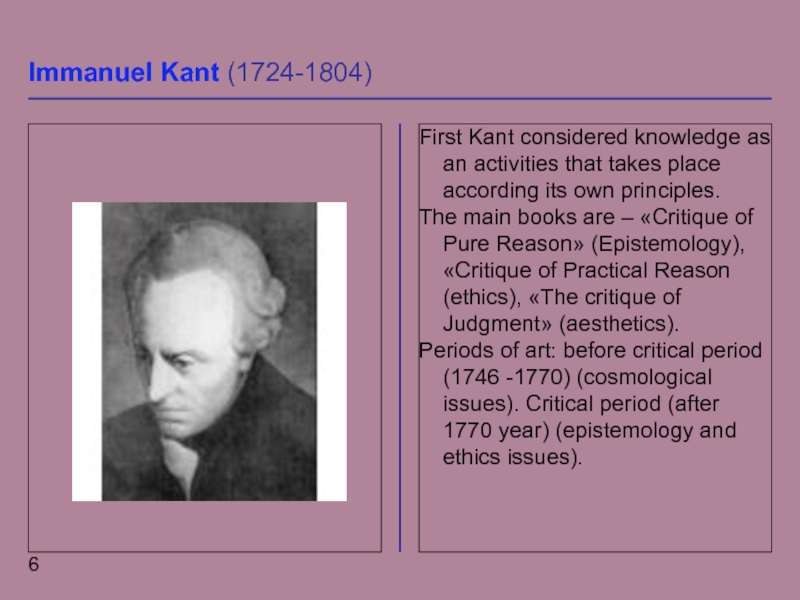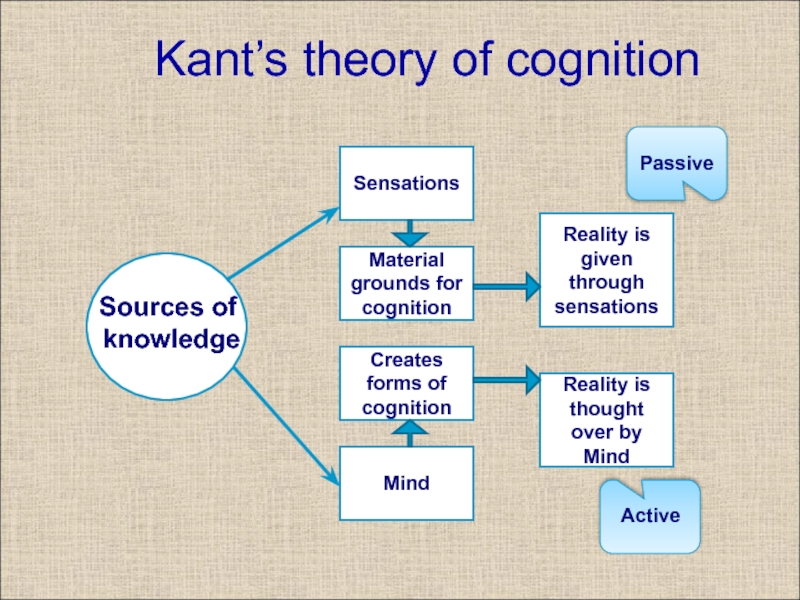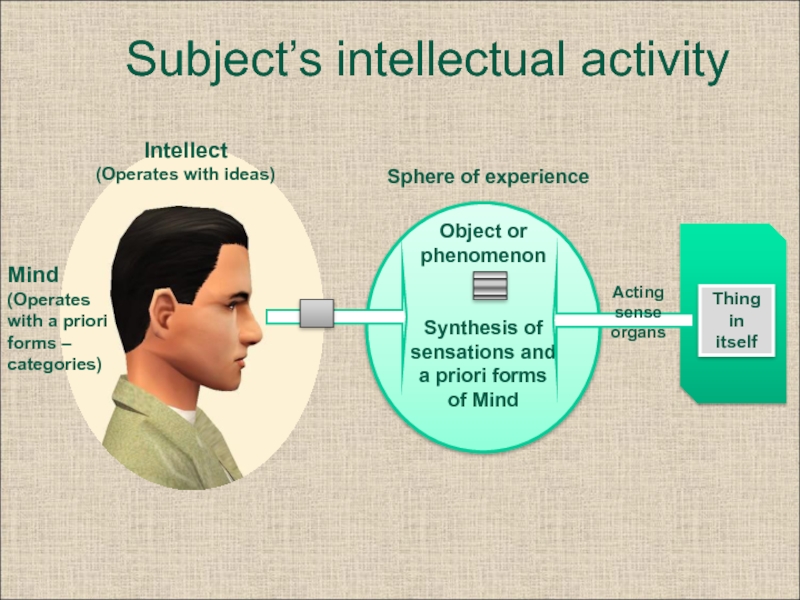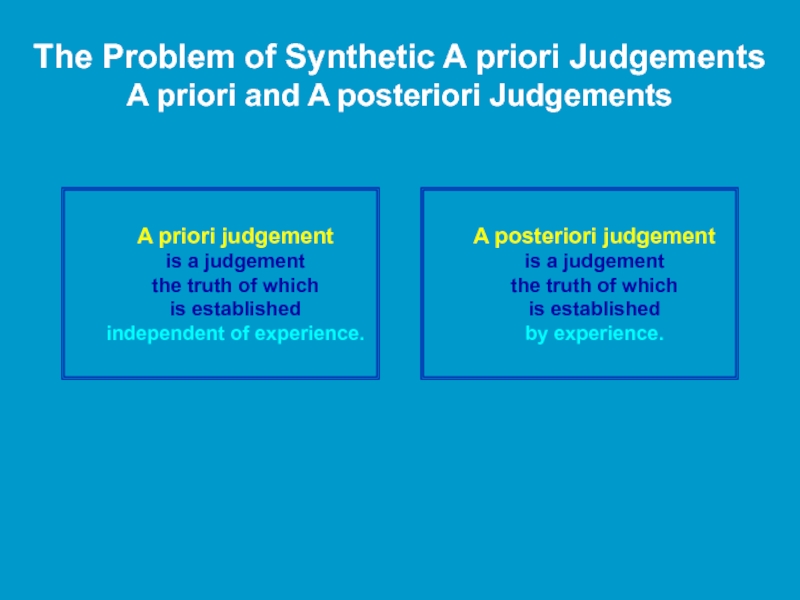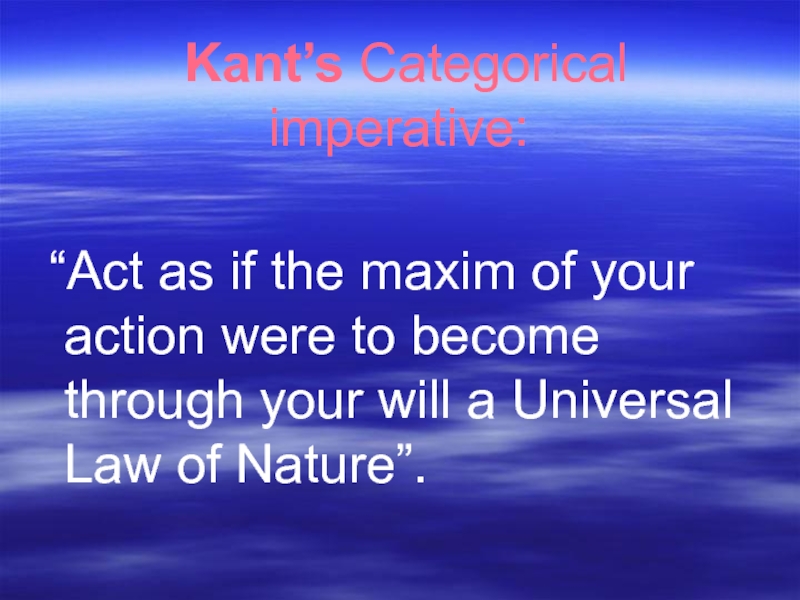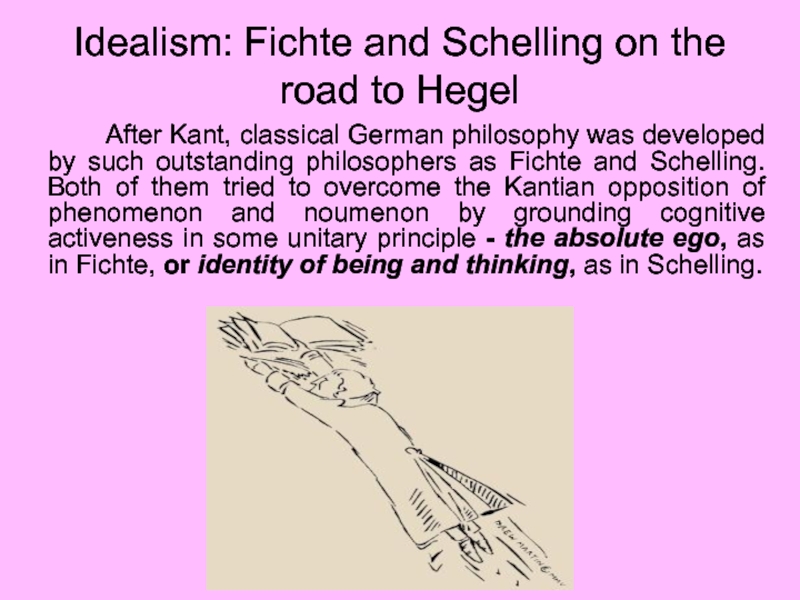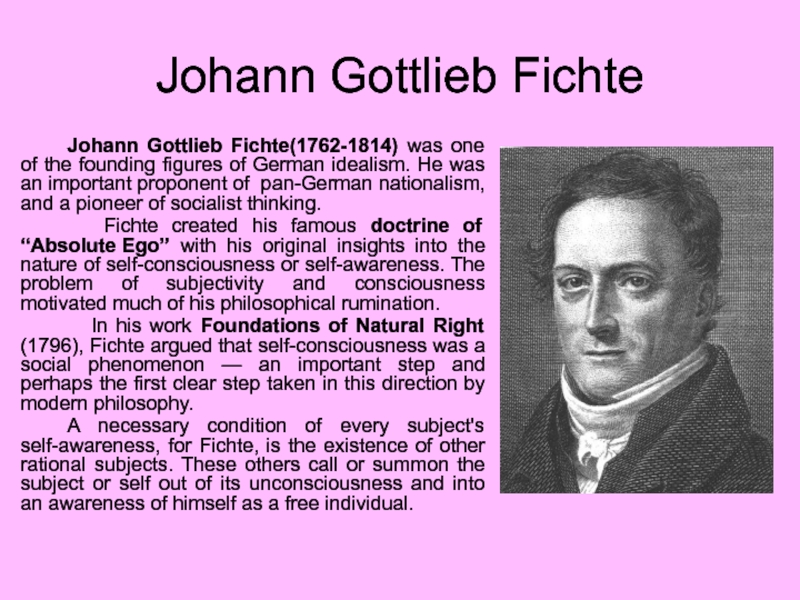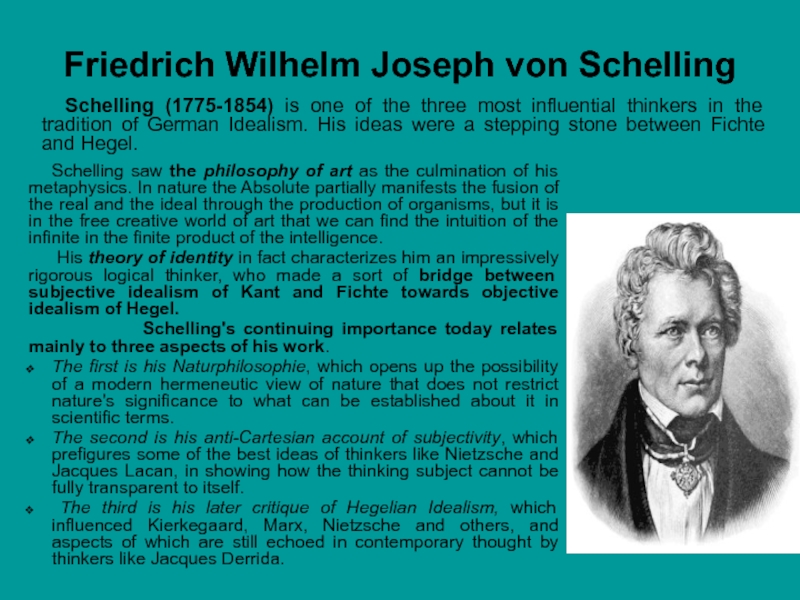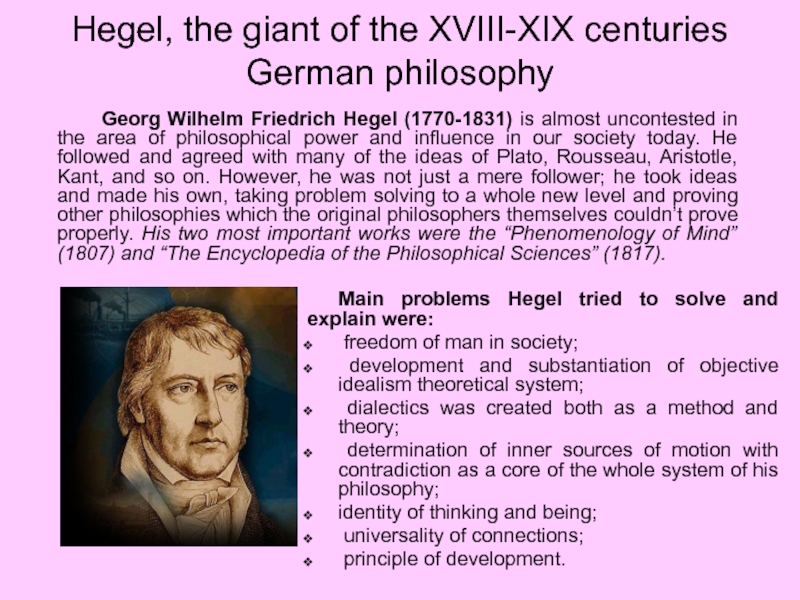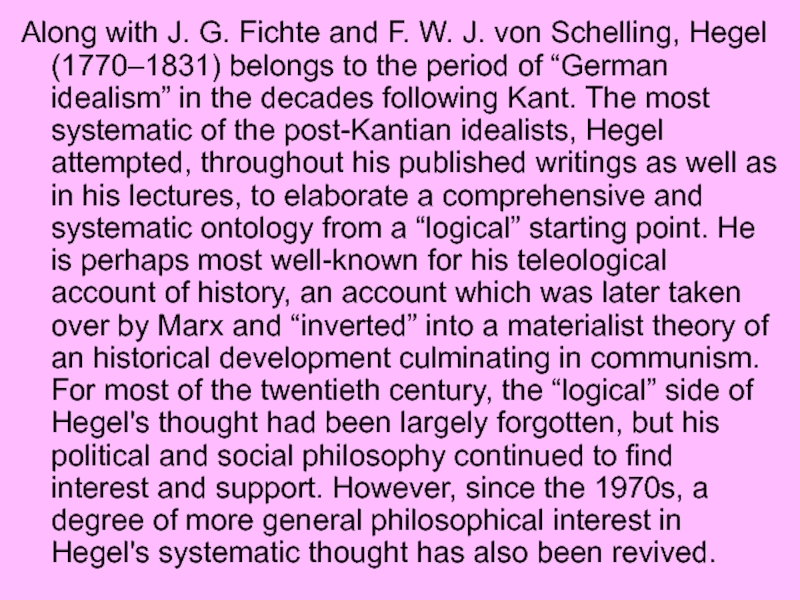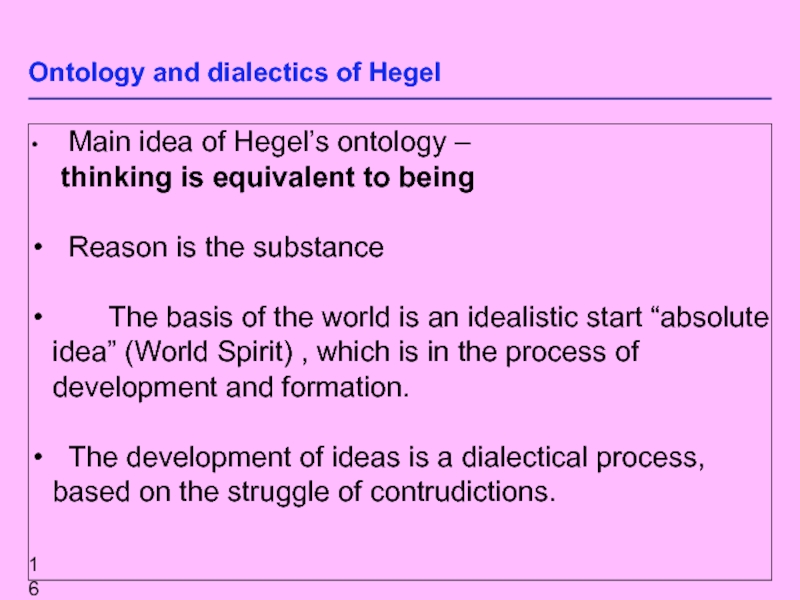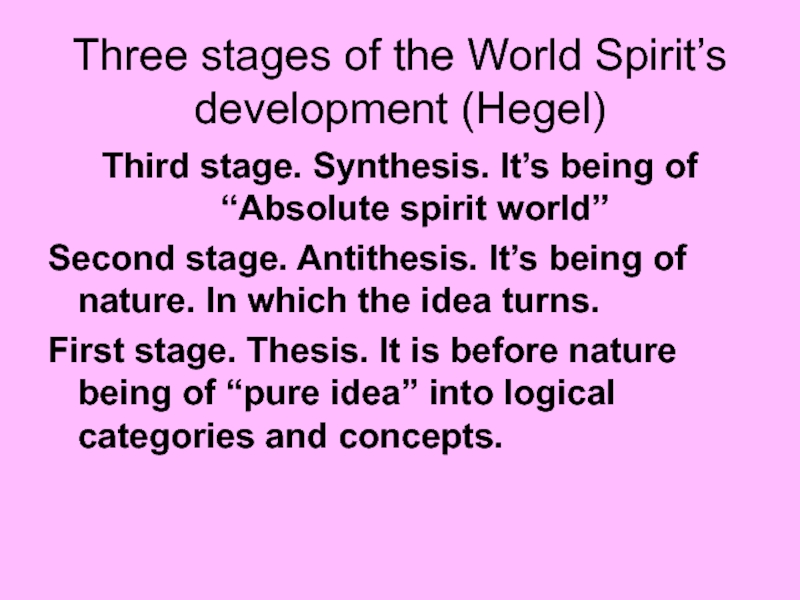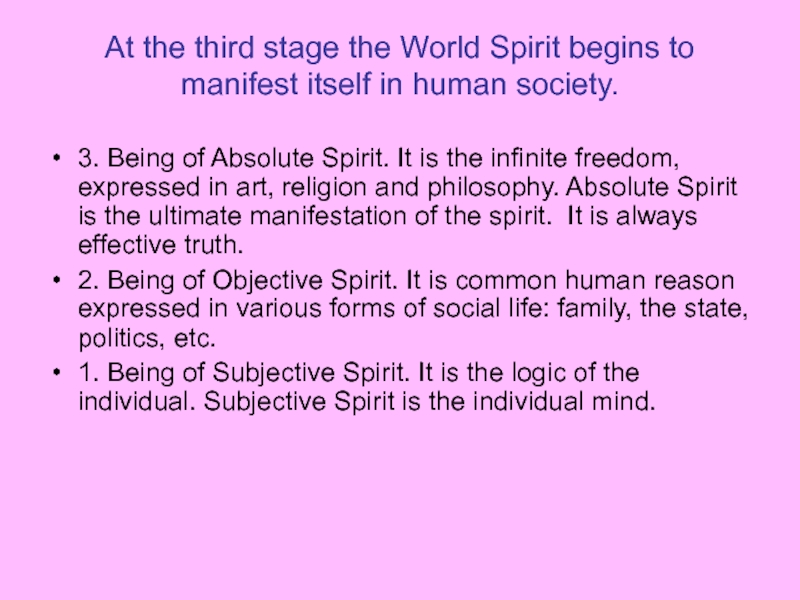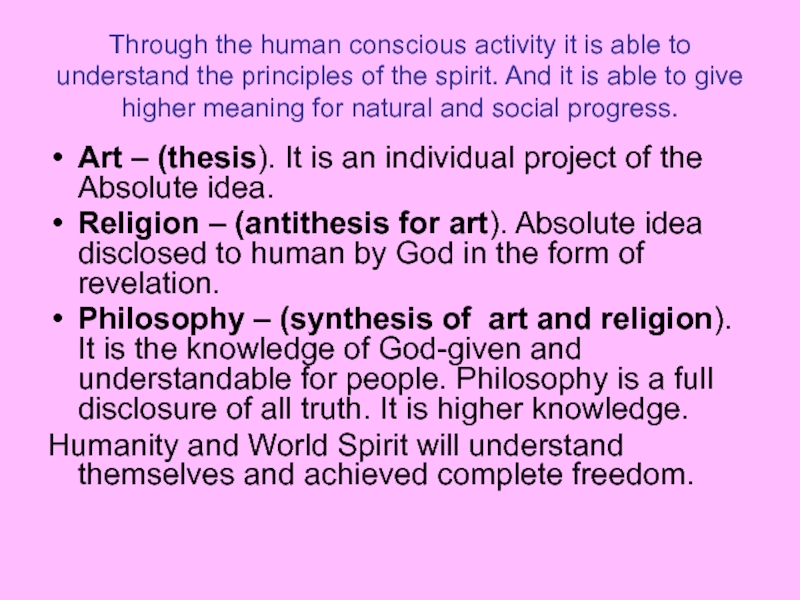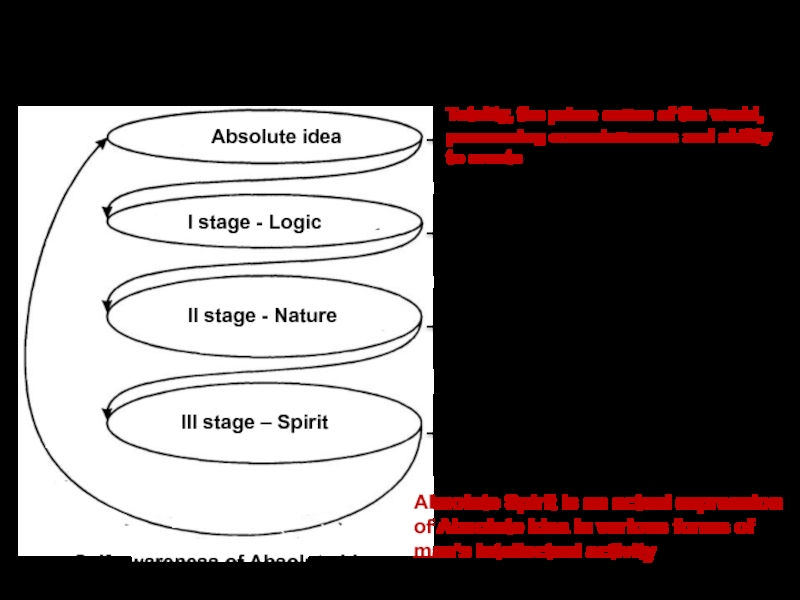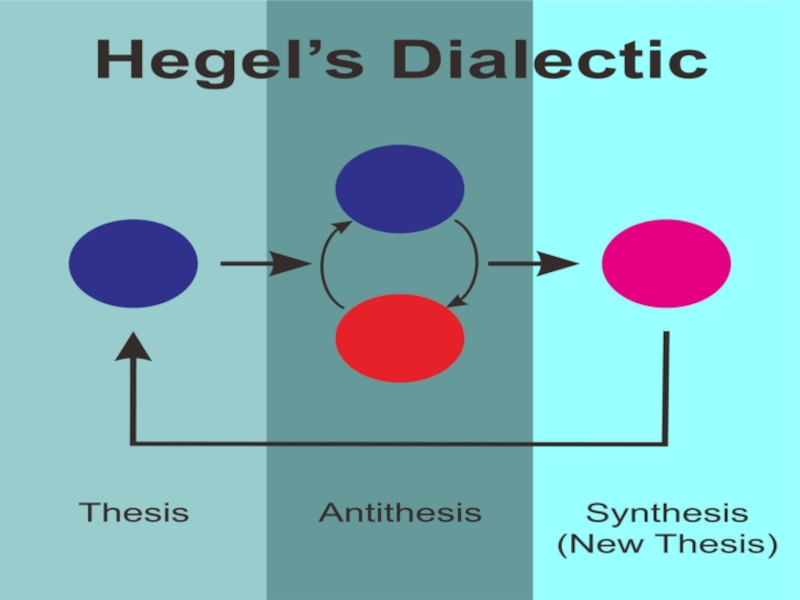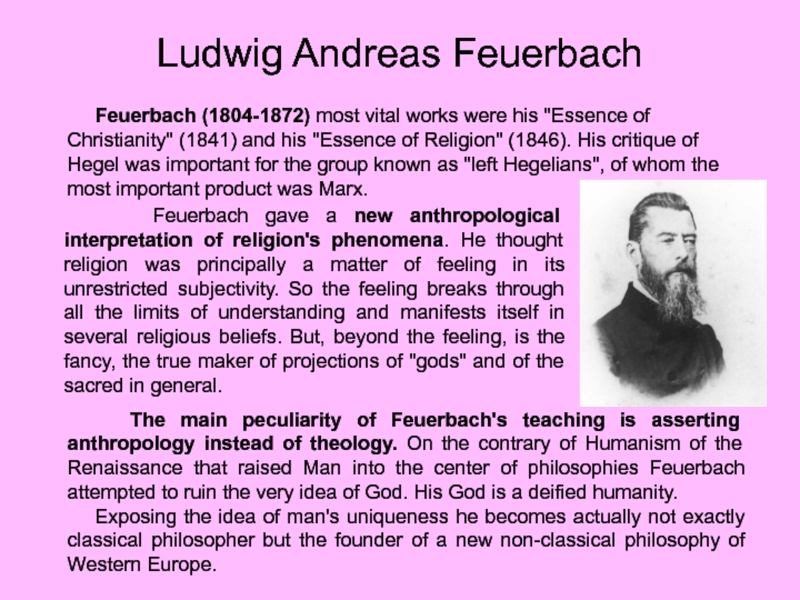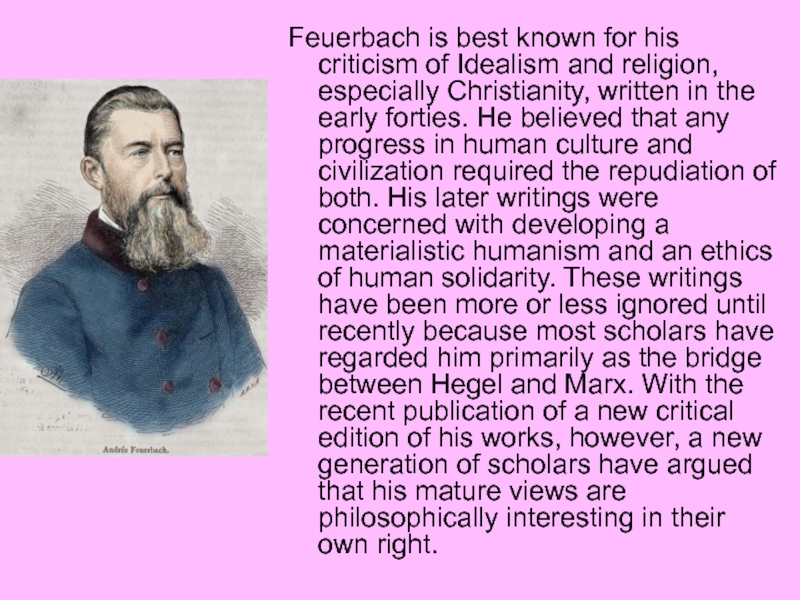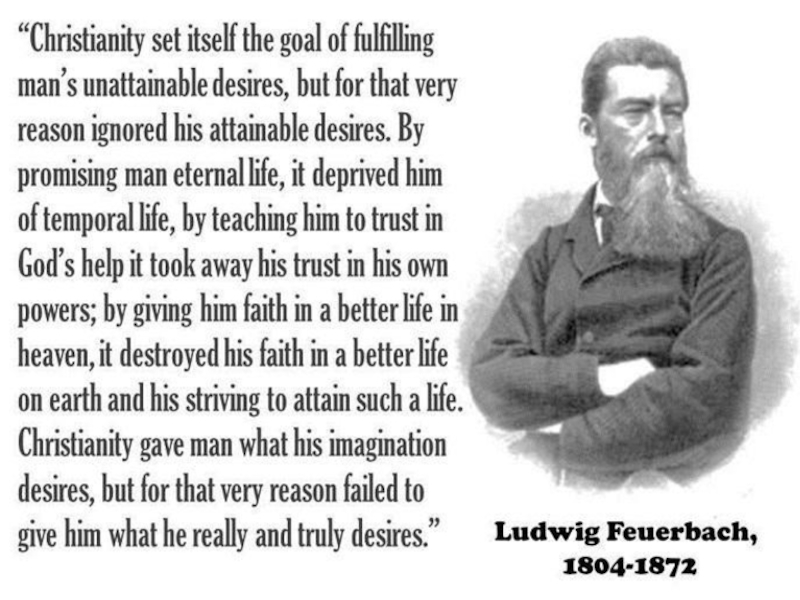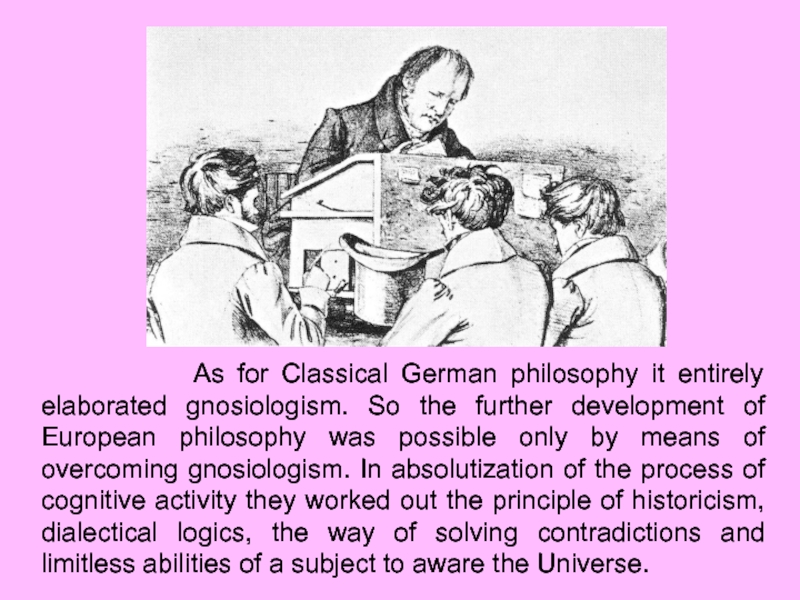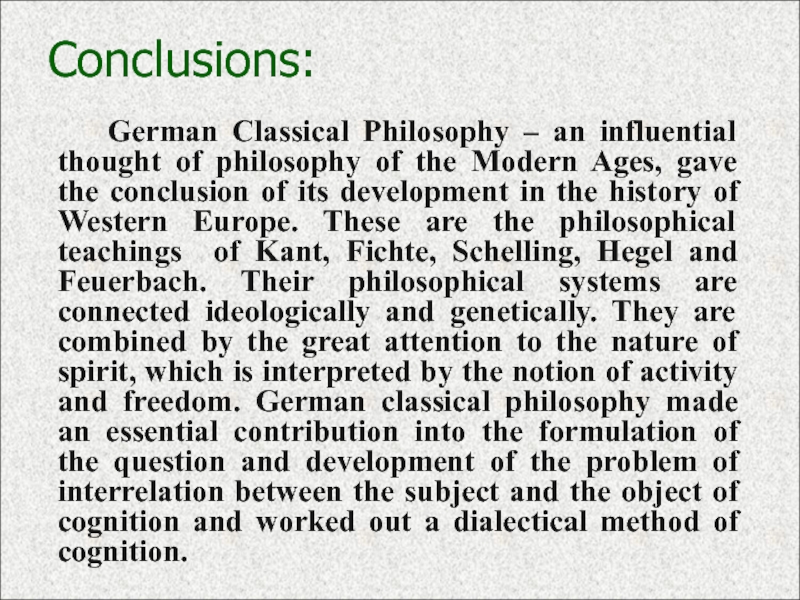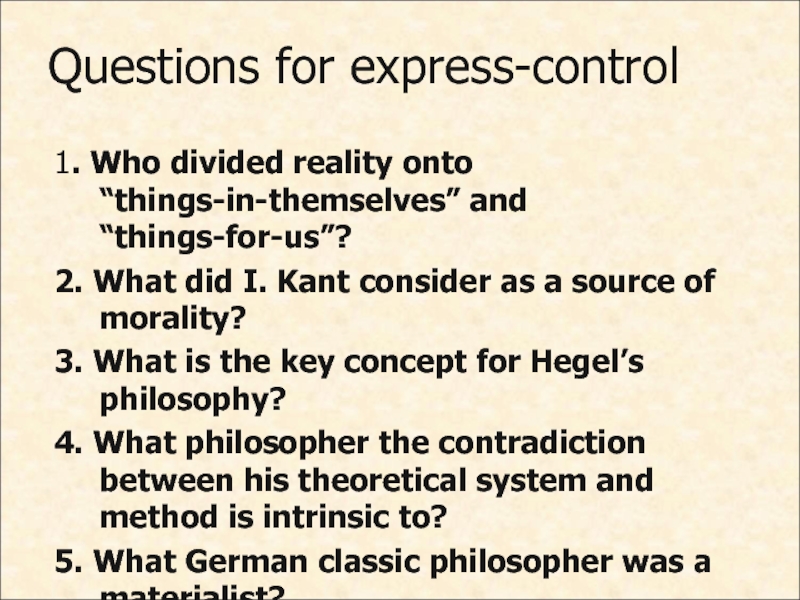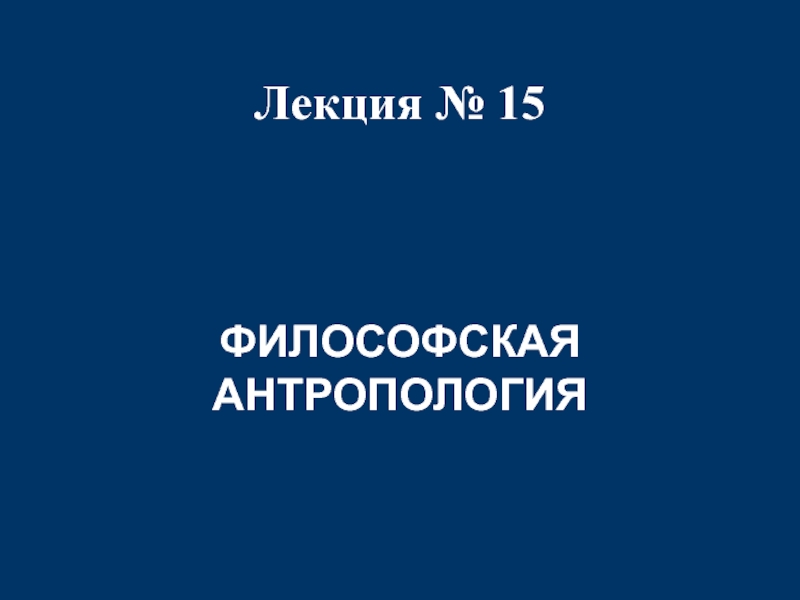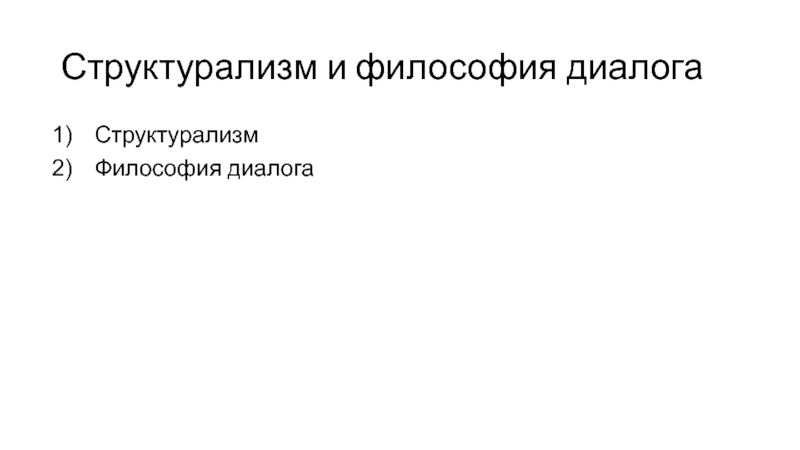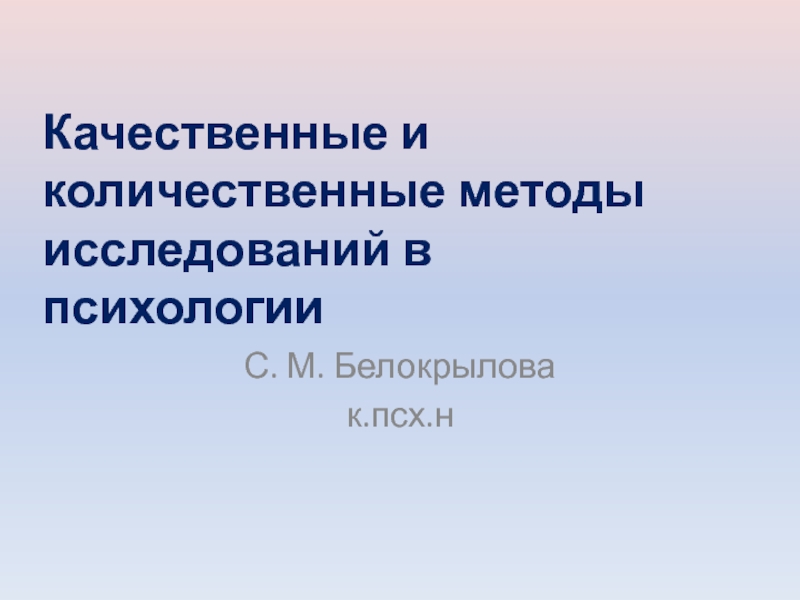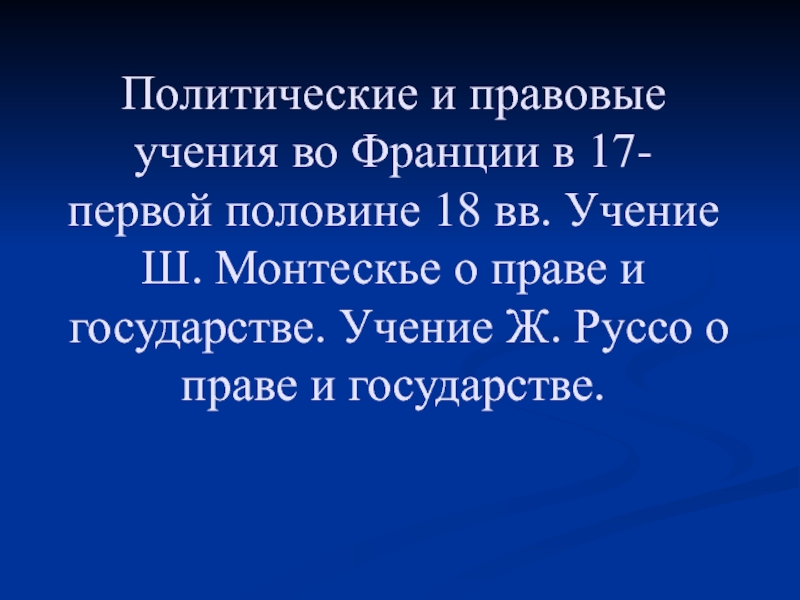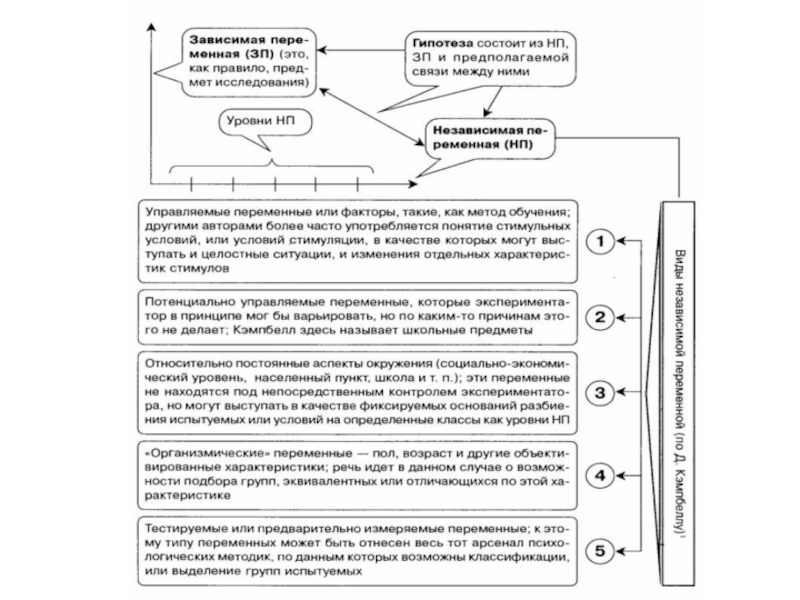- Главная
- Разное
- Дизайн
- Бизнес и предпринимательство
- Аналитика
- Образование
- Развлечения
- Красота и здоровье
- Финансы
- Государство
- Путешествия
- Спорт
- Недвижимость
- Армия
- Графика
- Культурология
- Еда и кулинария
- Лингвистика
- Английский язык
- Астрономия
- Алгебра
- Биология
- География
- Детские презентации
- Информатика
- История
- Литература
- Маркетинг
- Математика
- Медицина
- Менеджмент
- Музыка
- МХК
- Немецкий язык
- ОБЖ
- Обществознание
- Окружающий мир
- Педагогика
- Русский язык
- Технология
- Физика
- Философия
- Химия
- Шаблоны, картинки для презентаций
- Экология
- Экономика
- Юриспруденция
Classical German Philosophy презентация
Содержание
- 1. Classical German Philosophy
- 2. Plan: 1. German Classical Philosophy as an
- 3. At the
- 4. Main Peculiarities of the Classical German Philosophy:
- 5. Immanuel Kant (1724-1804) Kant was one of
- 6. Рисунок First Kant considered knowledge as an
- 7. Kant’s theory of cognition
- 8. Subject’s intellectual activity
- 9. A priori judgement is a judgement the
- 10. Kant’s Categorical imperative:
- 11. Idealism: Fichte and Schelling on the road
- 12. Johann Gottlieb Fichte Johann Gottlieb Fichte(1762-1814)
- 13. Friedrich Wilhelm Joseph von Schelling Schelling
- 14. Hegel, the giant of the XVIII-XIX centuries
- 15. Along with J. G. Fichte and F.
- 16. Ontology and dialectics of Hegel Main
- 17. Principles and categories of dialectics Principles: The
- 18. Three stages of the World Spirit’s development
- 19. At the third stage the World Spirit
- 20. Through the human conscious activity it is
- 21. Absolute idea life cycle
- 23. Ludwig Andreas Feuerbach
- 24. Feuerbach is best known for
- 26. As
- 27. Conclusions: German Classical
- 28. Questions for express-control 1. Who divided reality
Слайд 2Plan:
1. German Classical Philosophy as an integral philosophical system.
2. Immanuel Kant
3. Idealism: Fichte and Schelling on the road to Hegel.
4. Hegel, the giant of the 18th century German philosophy.
5. Feuerbach as a necessary stepping stone for non-classic philosophy of the 19-20th centuries.
Слайд 3 At the turn of the 19th
An important role in the formation of classical German philosophy was played by the achievements of natural science and the social sciences.
German classical philosophy is an influential line of philosophical thought of the late XVIII - early XIX centuries, which summed up the development of philosophy at this stage of Western European history. That was the final link in the development of the Modern Ages European philosophical rationalism and simultaneously a source, which genetically related to modern Western philosophy.
Слайд 4Main Peculiarities of the Classical German Philosophy:
1. Philosophical systems, characterized
2. The problem of dialectics was one of the central;
3. Idealism as the basic worldview orientation (with the exception of Feuerbach);
4. Coincidence of thinking and being as a matter of researches;
5. The core of this theoretical system was the idea of man’s activity, freedom and sovereignty.
Слайд 5Immanuel Kant (1724-1804)
Kant was one of the greatest minds mankind ever
Kant’s probing work includes two periods: Pre-critical and Critical ones.
He believed that the solution of the problems of being, of morality and religion must be preceded by a study in the possibilities and the boundaries of human knowledge.
Three famous Kant’s questions :
1. What can I know? - the “Critique of Pure Reason” (1781) – the theory of knowledge;
2. What ought I to do? - the “Critique of Practical Reason” (1790) - Ethics;
3. What can I hope for? - the “Critic of Judgment” (1790) – Aesthetics
Слайд 6Рисунок
First Kant considered knowledge as an activities that takes place according
The main books are – «Critique of Pure Reason» (Epistemology), «Critique of Practical Reason (ethics), «The critique of Judgment» (aesthetics).
Periods of art: before critical period (1746 -1770) (cosmological issues). Critical period (after 1770 year) (epistemology and ethics issues).
Immanuel Kant (1724-1804)
Слайд 9A priori judgement is a judgement the truth of which is established independent of
A posteriori judgement
is a judgement
the truth of which
is established
by experience.
The Problem of Synthetic A priori Judgements
A priori and A posteriori Judgements
Слайд 10 Kant’s Categorical imperative:
“Act as if the maxim of your
Слайд 11Idealism: Fichte and Schelling on the road to Hegel
Слайд 12Johann Gottlieb Fichte
Johann Gottlieb Fichte(1762-1814) was one of the founding
Fichte created his famous doctrine of “Absolute Ego” with his original insights into the nature of self-consciousness or self-awareness. The problem of subjectivity and consciousness motivated much of his philosophical rumination.
In his work Foundations of Natural Right (1796), Fichte argued that self-consciousness was a social phenomenon — an important step and perhaps the first clear step taken in this direction by modern philosophy.
A necessary condition of every subject's self-awareness, for Fichte, is the existence of other rational subjects. These others call or summon the subject or self out of its unconsciousness and into an awareness of himself as a free individual.
Слайд 13Friedrich Wilhelm Joseph von Schelling
Schelling saw the philosophy of art
His theory of identity in fact characterizes him an impressively rigorous logical thinker, who made a sort of bridge between subjective idealism of Kant and Fichte towards objective idealism of Hegel.
Schelling's continuing importance today relates mainly to three aspects of his work.
The first is his Naturphilosophie, which opens up the possibility of a modern hermeneutic view of nature that does not restrict nature's significance to what can be established about it in scientific terms.
The second is his anti-Cartesian account of subjectivity, which prefigures some of the best ideas of thinkers like Nietzsche and Jacques Lacan, in showing how the thinking subject cannot be fully transparent to itself.
The third is his later critique of Hegelian Idealism, which influenced Kierkegaard, Marx, Nietzsche and others, and aspects of which are still echoed in contemporary thought by thinkers like Jacques Derrida.
Schelling (1775-1854) is one of the three most influential thinkers in the tradition of German Idealism. His ideas were a stepping stone between Fichte and Hegel.
Слайд 14Hegel, the giant of the XVIII-XIX centuries German philosophy
Main problems Hegel tried to solve and explain were:
freedom of man in society;
development and substantiation of objective idealism theoretical system;
dialectics was created both as a method and theory;
determination of inner sources of motion with contradiction as a core of the whole system of his philosophy;
identity of thinking and being;
universality of connections;
principle of development.
Слайд 15Along with J. G. Fichte and F. W. J. von Schelling,
Слайд 16
Ontology and dialectics of Hegel
Main idea of Hegel’s ontology –
Reason is the substance
The basis of the world is an idealistic start “absolute idea” (World Spirit) , which is in the process of development and formation.
The development of ideas is a dialectical process, based on the struggle of contrudictions.
Слайд 17Principles and categories of dialectics
Principles:
The principle of transition of quantitative change
The principle of unity and struggle of opposites.
Denial principle.
Categories:
Essence
Contents
Common
Principle
Phenomenon
Form
Single
Random
Слайд 18Three stages of the World Spirit’s development (Hegel)
Third stage. Synthesis. It’s
Second stage. Antithesis. It’s being of nature. In which the idea turns.
First stage. Thesis. It is before nature being of “pure idea” into logical categories and concepts.
Слайд 19At the third stage the World Spirit begins to manifest itself
3. Being of Absolute Spirit. It is the infinite freedom, expressed in art, religion and philosophy. Absolute Spirit is the ultimate manifestation of the spirit. It is always effective truth.
2. Being of Objective Spirit. It is common human reason expressed in various forms of social life: family, the state, politics, etc.
1. Being of Subjective Spirit. It is the logic of the individual. Subjective Spirit is the individual mind.
Слайд 20Through the human conscious activity it is able to understand the
Art – (thesis). It is an individual project of the Absolute idea.
Religion – (antithesis for art). Absolute idea disclosed to human by God in the form of revelation.
Philosophy – (synthesis of art and religion). It is the knowledge of God-given and understandable for people. Philosophy is a full disclosure of all truth. It is higher knowledge.
Humanity and World Spirit will understand themselves and achieved complete freedom.
Слайд 21Absolute idea life cycle
Totality, the prime cause of the world,
Universal notions
General notions
Individual notions
Inorganic nature
Organic nature
Man as the highest form of evolution
Subjective Spirit
Objective Spirit
Absolute Spirit
Self-awareness of Absolute idea
Absolute Spirit is an actual expression
of Absolute idea in various forms of
man’s intellectual activity
Слайд 23Ludwig Andreas Feuerbach
Feuerbach gave a new anthropological
The main peculiarity of Feuerbach's teaching is asserting anthropology instead of theology. On the contrary of Humanism of the Renaissance that raised Man into the center of philosophies Feuerbach attempted to ruin the very idea of God. His God is a deified humanity.
Exposing the idea of man's uniqueness he becomes actually not exactly classical philosopher but the founder of a new non-classical philosophy of Western Europe.
Feuerbach (1804-1872) most vital works were his "Essence of Christianity" (1841) and his "Essence of Religion" (1846). His critique of Hegel was important for the group known as "left Hegelians", of whom the most important product was Marx.
Слайд 24
Feuerbach is best known for his criticism of Idealism and religion,
Слайд 26 As for Classical German philosophy
Слайд 27Conclusions:
German Classical Philosophy – an influential thought
Слайд 28Questions for express-control
1. Who divided reality onto “things-in-themselves” and “things-for-us”?
2. What
3. What is the key concept for Hegel’s philosophy?
4. What philosopher the contradiction between his theoretical system and method is intrinsic to?
5. What German classic philosopher was a materialist?
